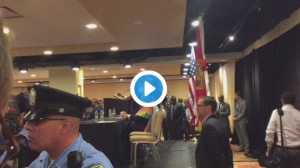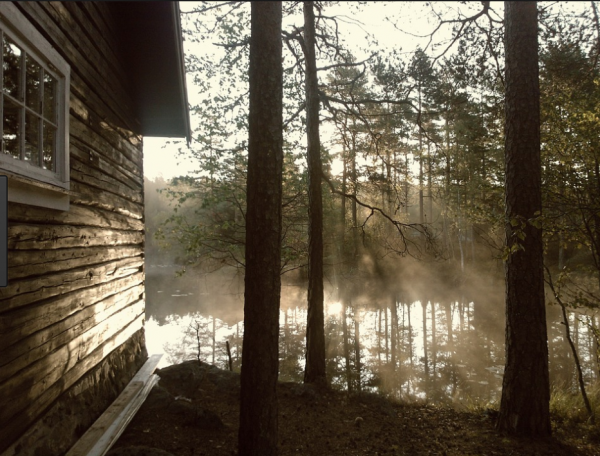National Review asked me for a book recommendation, and I thought I’d share it with you!
To be honest, William R. Forstchen’s “One Second After” scared me. The book begins with a foreign country detonating Electro Magnetic Pulse (EMP) devices high over our soil, destroying almost all electronic devices within the detonation’s line of sight.
“Millions would die in the first week alone,” Newt Gingrich wrote in the foreword about what would happen if this plausible scenario actually occurred. But, death and damage would continue for decades. The Heritage Foundation reports that airplanes would fall from the sky; almost all cars would stop working; water, sewer, and electrical networks would fail simultaneously; and “banking, energy, transportation, food production and delivery, water, emergency services, and even cyberspace would collapse.” (See Gingrich talking about the threat– and Forstchen’s book –in an interview with Greta Van Susteren at the bottom of this post.)
Though some doubt the particulars of the effects or the likelihood of an attack, the resulting destruction and devastation are inarguable. In the foreword, this scenario was described not a matter of if but when.
On that cheery note, I should say that One Second After is a page-turning thriller. Far from being a dry but anxiety-producing recitation of facts, this novel takes you through the experience through the character of John Matherson in a small North Carolina town. The setting is important. I live in a rural Tennessee town – in the “Mule Capital of the World” – with streams, livestock, and ammunition aplenty. Wouldn’t we fare better than people crammed together in places like Manhattan?
Forstchen’s book doesn’t give anyone much assurance.
By tracing the story of a retired army colonel turned college professor, he takes the reader through all of the possible consequences of being at war without knowing that the nation is, in fact, at war. (Or, with whom.) Without electricity or means of transportation, what’s left of the federal government is unable to communicate with the rest of the nation. FEMA isn’t going to show up with emergency supplies. How would your community react? How would it deal with looters? How would it allocate the remaining insulin to the town’s few diabetics? How would hospitals and nursing homes fare without generators? What would it do with the people who are suddenly stranded on the interstate and are walking to your town to consume some of the last resources? What happens when individual supplies of heart medications run out… or – gasp! –Prozac?
When I was telling someone about this book at a recent conference, he said to me, “so, this is basic apocalypse porn, right?” However, this is not just scaring-for-the-sake-of- titillation. We live in uncertain times. When a tragedy occurs, part of survival is being able to adjust to the new reality quickly. For example, imagine you run out into the garage to grab ice cream from the freezer when a lurking attacker grabs you. The faster you can change your frame of reference from chocolate moose tracks or vanilla to I’m fighting for my life, the better off you’ll be.
Forstchen’s novel is the first step to accepting the new reality of what could happen in this unpredictable world by providing a much-needed shift in our perception of America. We used to be a collection of rugged individualists who could forge their own paths if tragedy occurred. (For those of us who grew up reading Little House in the Big Woods, this romantic ideal of American toughness is ingrained.) Since pioneer days, however, modern technology and transportation have turned America into an artificially-sustained microcosm completely dependent on a very vulnerable infrastructure.
One Second After is a scary, yet somehow addictive, description of what exactly might happen when the lights go off and never come back on.
Buy it by clicking on the cover below:











